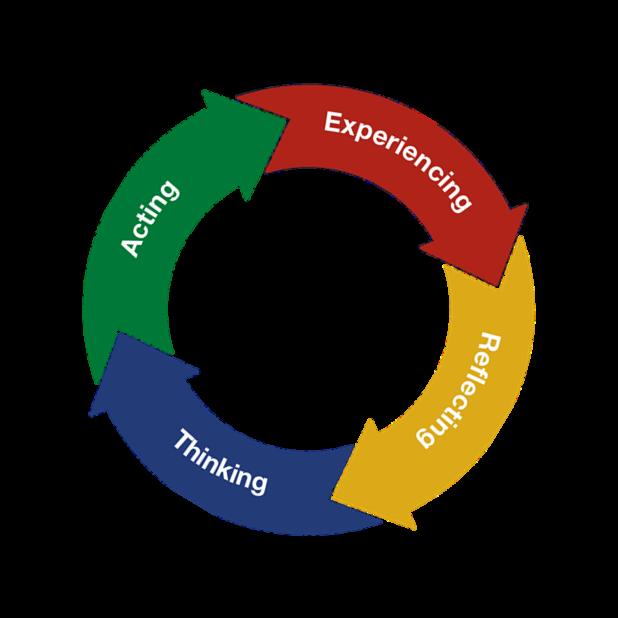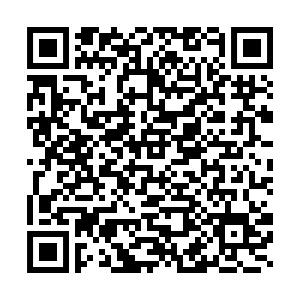

LEARNING AT CC
Collaborative for Community Engagement
What is communityengaged learning?
CEL pedagogies promote student learning and community impact. For example, students might ...
complete a capacity-building project for a community organization that engages course content and skills. answer an applied research question using methodological tools of the discipline. offer disciplinary expertise on a real-world question or topic of interest.
serve a community and in so doing deepen understanding of course content through experience.
co-learn with, learn from, and teach community members in classroom and community settings. have an immersive transformational, experience in a context, place, or community beyond campus. co-create an expressive, artistic, or creative endeavor, with community.

WHY COMMUNITYENGAGED LEARNING (CEL)?
Community-engaged learning pedagogies are part of a larger civic engagement movement that seeks to advance the public purpose of higher education through bridge-building.
Community-engaged learning bridges:
Theory & Practice through experiential, applied learning, developing students into engaged citizens.
Knowledge & Community Impact bringing disciplinary expertise and research and creative methods to public problem-solving.
CC & Colorado Springs through institutional citizenship & partnership-building.
BENEFITS TO FACULTY
Strengthens investment in and interest in classroom teaching. Increases engagement and learning for students AND faculty.
Enriches classroom discussions, bringing in new dimensions.
Presents new avenues for research and publication.
Opens opportunities for networking and community-building with likeminded peers across the disciplines
Cultivates relationships with community organizations that may create opportunities for future collaborations.
Provides opportunities to be more involved in and informed about one’s community.
May boost course enrollment, attracting highly motivated students.
BENEFITS TO STUDENTS
Learning, Academic Outcomes:
Deepens understanding of subject matter and complexity of issues; problem solving and analysis skills; critical thinking; understanding of public relevance of discipline and ability to apply content to real-world challenges; cultivates curiosity
Personal Development:
Deepened sense of identity and selfconcept; higher self-esteem; more highly internalized moral commitments; selfefficacy
Social Development:
Enhances communication, leadership, and problem-solving skills; develops empathy and understanding of others; promotes collaboration skills and ability to work with others; reduces stereotypes and facilitates cross-cultural understanding
Civic Development:

Experiential Learning Cycle
Greater interest in and commitment to the community and the public good; stronger belief that they can make a difference, improved social responsibility, citizenship skills; greater involvement in the community post-graduation
Career Development:
Supports discernment of career path; opportunity to connect with field professionals; community-engaged project and internship experiences open doors for early-career professionals
Student Success:
More positive attitudes toward school and learning; stronger faculty relationships; more likely to graduate; greater satisfaction with courses and their learning; greater satisfaction with college; more likely to become donors
Community-engaged learning is one form of experiential, applied learning in which students:
Experience communities, cultures, places, issues, and organizational settings beyond the campus.
Reflect on experience in the service of personal exploration and discovery, and integrate community experiences into personal, intellectual, and career trajectories.
Deepen and enrich their understanding of course and disciplinary content and competencies.
Apply knowledge to the public good and public problem solving, translating classroom content into personal, civic, and social action.
HOW DO YOU DO COMMUNITY-
ENGAGED
LEARNING?
CEL courses include collaborations with community partners for applied projects, assignments, or experiences that aim to help students learn course content and benefit communities beyond the academy.


TIPS FOR CEL ON THE BLOCK
1. Consider project-based work. It’s difficult to plug in to ongoing efforts in 3.5 weeks, but possible to offer a useful outcome or idea to, or answer a question for, community organizations - supporting one discrete step of a longer timeline of community work
2. Community impact might be deferred, and that’s ok (3.5 weeks goes by quickly). Our goal is to impact a student’s journey such that they become lifelong changemakers with a lifetime’s worth of impact


3. Remember that the core assets of institutions of higher education are disciplinary knowledge and methods, more than student volunteering time. We encourage knowledge-based collaborations, such as public problem-solving, community-engaged research, and opportunities for students to share and apply course content.
4. The condensed nature of CEL partnerships heightens the need to work with the community engagement office, and/or collaborate with others working with that organization. That way, your course can be one touchpoint in a sustained institutional relationship - of which your course is one part of a larger whole




EXAMPLES OF CEL ON THE BLOCK

EXAMPLES OF CEL ON THE BLOCK
Students in a Curriculum Theory course designed a curriculum for the Diversity University workshop series facilitated by nonprofit Educating Children of Color (ECOC)
In an Environmental Synthesis course, students analyzed temperatures across Colorado Springs, ultimately creating a heat map that demonstrated the most marginalized area of our city is 6 degrees hotter due to lack of tree canopy
In a Political Science Research Methods course, students brainstormed ideas to inform a political campaign to extend a city tax supporting local parks, public land, and open space After reviewing public opinion and other data, they came up with the slogan “Pennies for Parks,” used in the campaign
In a Neuroscience course, students prepared and taught lessons on the brain to local elementary school students using real animal and human brains kept by the department Outreach was sustained throughout the year by the Neuroscience Club Students in Development and Grassroots Resistance in Latin America learned the sociology of development and implications of policy in Latin America Students then traveled to Latin America to learn from and build solidarity with grassroots activists
In a The Art of Songwriting class, students collaborated with inmates from the local jail The students received lyrics written by the inmates along the theme of freedom, created songs from these texts, and then performed those songs in the jail
In a Political Campaigning class, students interned in primary and general elections, and then reflected on the experience through postcampaign written analysis
TAG YOUR COURSE
The CCE manages the community-engaged learning course tag, which tracks CC courses that use CEL pedagogy.
What are the criteria for the course tag?
The course incorporates an experience, assignment, or project that interacts with, and benefits, communities beyond the campus 1
2.
Community-engaged work is an integrated learning component of the course, enhancing and enhanced by knowledge from the curriculum.
Still not sure if the class you teach is community-engaged learning? Ask yourself the questions below.
√ Do students in my course engage with communities beyond the campus?
√ Who benefits from the community experience, assignment, or project?
√ Did students learn course-related disciplinary knowledge or skills from the community experience, assignment, or project?
Why should I tag my course?
SDFSDSD
Tagging your course enables the CCE to: Promote engaged teaching 1 Share course models and outcomes 2. Gather and analyze data on academic collaborations, 3. partnerships, and projects

How do I tag my course?
Email the CCE Director at jradke@coloradocollege.edu, or visit https://tinyurl.com/celtagcc to submit a form.
CONNECT TO COMMUNITY PARTNERS FOR COURSES
Are you interested in communityengaged teaching, but need community connections? If so, you’re invited to participate in the
H Publicly Engaged Actionable
Knowledge PROJECT

The PEAK Project bridges campus knowledge to community impact by connecting CC educators to nonprofit partners for community-engaged learning classroom projects (http://tiny.cc/PEAK).
SDFSDSD
The PEAK Project is a match-making service, facilitated through paired rounds of Calls for Interest from faculty for courses (one semester in advance) and from 100+ community partners for CEL project ideas To each audience, we share opportunities – courses seeking partners, partners seeking academic partnerships When we receive proposals, the CCE engages in broad and targeted recruitment in an effort to “match” courses with partners.
You may also peruse our organization database to identify potential community partners at https://tinyurl.com/CCpartnerdatabase.



PartnershipAgreements
TheCCEencouragesallfacultyandcommunitypartnerstoestablisha partnershipagreementfortheircoursecollaboration Doingsofacilitates intentionalconversationsaroundhopesandbenefits,grantsaspaceto discusswhatallstakeholdersbringtothetable,ensuresmutual expectationsaremadeexplicit,andholdsallpartiesaccountableto commitments.
Youcanfindasampleathttps://tinyurl.com/sampleCELMOU.

CCE RESOURCES
CEL Curriculum Support Grant
https://tinyurlcom/celminigrant
Apply for up to $500 of support for community-engaged courses Applications accepted on a rolling basis and considered until funding is exhausted
CEL Course Thought-Partners
https://tinyurlcom/bookanappointmentCCE
Connect with CCE Director Jordan Travis Radke to brainstorm course design and projects or Niki Sosa Gallegos, Assistant Director of Community Partnerships, to explore community partnership possibilities. Jordan and Niki are also available to facilitate workshops or discussions, or to share information, in your courses.
Engaged Faculty Listserv
https://tinyurl.com/engagedfacultylistserv
Join the Engaged Faculty Listserv to receive information on CEL resources, processes, learning opportunities, and partnership possibilities.
HOW FACULTY MIGHT


Did you know CC has an institutional membership with Campus Compact? Campus Compact is a national coalition of colleges and universities committed to advancing the public purposes of higher education.
As a member institution, we have access to many great resources including: virtual learning and networking opportunities, conferences, resources such as syllabi and article libraries, grants, and national awards and fellowships. Visit www.compact.org for more.

Several national organizations and academic researchers have conducted metaanalyses of the evidencebased outcomes of community-engaged learning. The CCE encourages you to peruse this recent AACU report at https://tinyurlcom/aacureport
TEACHING OPPORTUNITIES FOR COMMUNITY-COMMITTED FACULTY
Liberal Arts in Correctional Facilities
https://tinyurlcom/LACFinitiative
The mission of the Colorado College Liberal Arts in Correctional Facilities Initiative (LACF) is to address inequities in higher education by expanding access to higher education for incarcerated persons
Through the LACF, Colorado College faculty offer for-credit courses at no cost in the Youthful Offenders System (YOS) facility in Pueblo, which serves a population of 19 to 25-year-olds. Student receive credit through Pueblo Community College (PCC), and courses are guaranteed to transfer as requirements toward associates or bachelor's degrees at any Colorado public institution of higher learning. The foundation of LACF is a 3-way partnership between Colorado College, the Colorado Department of Corrections, and Pueblo Community College (PCC).
Stroud Scholars
https://tinyurl.com/teachforstroud
Stroud Scholars prepares students for selective college environments by working directly with high promise youth to provide academic preparation, mentorship, and guidance navigating admissions and financial aid processes to CC and beyond. Students successfully completing the three-year college preparatory program will earn admission to Colorado College and receive a financial aid package that will enable them to attend
Alongside a high school teacher, CC faculty co-teach Writing and Quantitative Reasoning courses for high school students during the signature summer program each July


